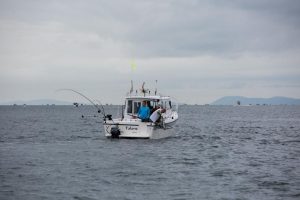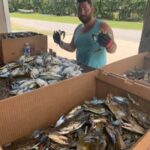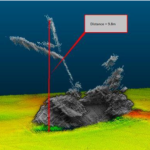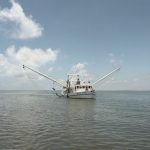Category Archives: Western Pacific
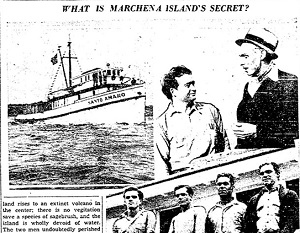
S.D. tunaboat captain discovered Galapagos ‘Garden of Eden’ tragedy 85 years ago
If someone aboard the local tunaboat Santo Amaro hadn’t been curious, the bizarre finale of the Galapagos islands’ modern Eden might not have been learned for years. The Santo Amaro was back yesterday, loaded with fish and bringing an account of the startling events which followed the discovery of two mummified corpses on Marchena island’s barren shore on the afternoon of Nov. 17. The ghastly discovery by the Santo Amaro’s people apparently had no ill effect on their luck, for the clipper had a catch well in excess of 100 tons of prime fish when she went up to the Van Camp plant to unload. >click to read< 09:47

Warren proposes ‘Blue New Deal’ to protect oceans. Where Warren’s Blue New Deal Falls Short
Sen. Elizabeth Warren (D-Mass.) on Tuesday proposed a “Blue New Deal” plan in what she calls an effort to protect oceans and rebuild the economy associated with oceans. The proposal was influenced by a question from an oyster farmer at the CNN presidential town hall on the climate crisis in September,,,“I said I would, and I meant it,,, >click to read< 11:03
An Environmental Lawyer Explains Where Elizabeth Warren’s Blue New Deal Falls Short – Warren’s plan does recommend folding the US into the United Nations Law of the Sea treaty,,,, Furthermore, the Blue New Deal aims to rebuild America’s fisheries, an effort that “would support an additional 500,000 jobs and generate an additional $31 billion in sales impacts,” >click to read< 11:09
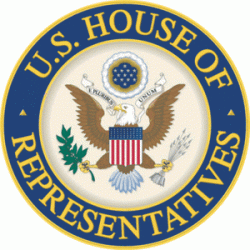
Measure to help protect, enhance working waterfronts passes U.S. House
The measure, introduced by Rep. Chellie Pingree of Maine, D-1st District, would provide $24 million in federal grants and loans to states, which could allocate funding to municipalities, nonprofits and fishing co-ops for projects that preserve or improve working waterfront infrastructure. If approved by the Senate, it also would create a task force at the Commerce Department charged with identifying threats to working waterfronts, including climate change and marketplace pressures. >click to read< 09:02

Its going to be up to people in the fishing industry to save our fishing industry by Sam Parisi
We ALL need to step up to the plate before this industry goes under because of absurd regulations, pandering politicians, and environmental groups. I have reached out to my Senators and Congressman, whom have actually responded after utilizing Fisherynation to get their attention, for which I am grateful, with little success from those elected officials regarding the issues I have continuously contacted them about. As usual, they disappoint with no action. Senator Markey did support an issue I asked him to, which was about supporting Alaska Senator Dan Sullivan’s S-K bill, which he did, and I thank him for that. >click to read< 16:50

On the 78th Anniversary, Pearl Harbor Veteran to Be Interred on Sunken Ship
It was an attack that shaped history, leaving more than 2,400 Americans dead and forcing the United States to enter a war it had been reluctant to join. On Saturday, the 78th anniversary of the 1941 sneak attack by Japan on Pearl Harbor, the remains of one of the survivors of the assault will be interred on his sunken ship, the USS Arizona. Lauren Bruner, who was among the last sailors rescued from the Arizona as it exploded into flames and sank, died in September at age 98. >click to read< 07:06

Bumble Bee Foods to File Bankruptcy, Sell Assets to Taiwanese Firm
Bumble Bee Foods announced Thursday it will file for bankruptcy and sell its assets to a Taiwanese company for $925 million. The bankruptcy sale comes in the aftermath of criminal fines and civil lawsuits against the San Diego company in the wake of a federal price-fixing case. “It’s been a challenging time for our company but today’s actions allow us to move forward with minimal disruption to our day-to-day operations,” said Jan Tharp, president and chief executive officer. >click to read< 16:53
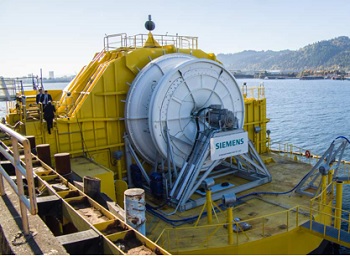
Wave Energy Tech Is Ready to Plug Into a Real Grid
In Hawaii, the OceanEnergy Buoy is slated to connect to the island of Oahu’s electric grid next month. The 749-metric-ton device was recently towed from Portland, Ore., to the U.S. Navy’s Wave Energy Test Site, where the bright yellow buoy will undergo a year of performance tests. The project builds on a decade of research and several smaller iterations, including a quarter-scale model that was tested for three years in Ireland’s Galway Bay. >click to read< 08:22
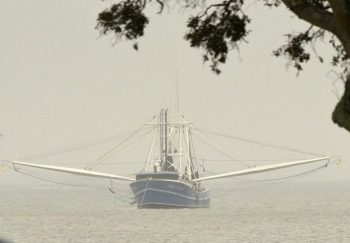
Illegal foreign fishing draws congressional eye
Nathan Rickard, representing local shrimpers through the Southern Shrimp Alliance, was one of the people invited to speak on a panel to the subcommittee. He said federal anti-dumping laws helped provide stability to an industry that received a massive hit from imported shrimp beginning in the late ‘90s. “Although the industry permanently had lost many shrimping families, and has struggled to maintain its foothold in some coastal communities, the threat that the industry would entirely disappear has abated,” Rickard said. “The U.S. shrimp industry currently produced about one out of every eight pounds of shrimp that are consumed in our country. >click to read< 10:10

A reminder from Sam Parisi to those interested in creating and implementing a U.S. Fish Bill
Greetings to all commercial fishermen, fish processors, equipment suppliers, politicians, and citizens, that are interested and supportive of creation of the U.S. Fish Bill. It is important that we create an atmosphere of unity and inclusion for all to reach out to their political representation, and inform them of need for a major Bill supporting all segments of the U.S. Fishing industry, and ask that they get involved. I am asking Senator Bruce Tarr, and Rep. Ann-Margaret Ferrante to attend. The meeting will be held at the Gloucester City Hall November 21 at 7 pm. For developing info, and input of idea’s, please call me! Thank you, and best regards! Sam Parisi, Gloucester Mass. at 978 491 7722 06:45
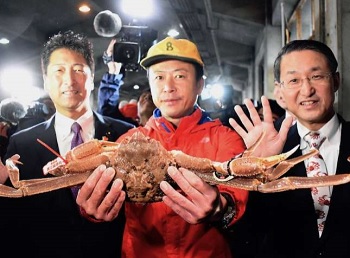
A Snow Crab sells for $46,000, a likely world record
In a story that some might find hard to believe, a bidder in Japan just paid 5 million yen-or $46,000 USD-for a 2.7-pound snow crab at an auction in Tottori, and it is likely to be recognized as a Guinness World Record.,, The crab, described as a gourmet itsukiboshi (five shining stars) crab, will be sold to a restaurant in Tokyo’s Ginza shopping district. >click to read< 11:31
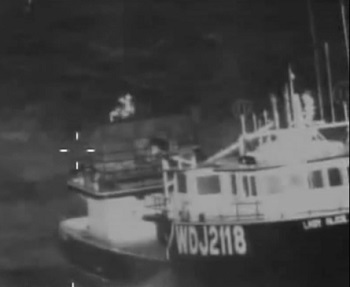
Video: Coast Guard, Navy conduct medevac of injured fisherman off Hawaii
The Coast Guard and Navy conducted a medevac of an injured mariner 431 miles off Hilo, Big Island, Thursday.,,, At 9:30 a.m., Tuesday, Joint Rescue Coordination Center Honolulu (JRCC) watchstanders received a report from the master of the commercial fishing vessel Lady Alice stating a crew member was suffering from an eye injury he sustained while fishing. >click to read< 06:59

A Fish Bill Update from Sam Parisi, and a scheduled meeting in Gloucester with all invited!
Dear Fisherynation Readers, I wanted to share some information about a project that I have an interest in seeing advance, a U.S. Fish Bill. I am pleased to let you know that today, a staffer from Senator Markey’s office responded to my request to help draft a Fish Bill. I had a good conversation with the staffer that also requested a meeting with Massachusetts fishermen and local politans to discuss and endorse a U.S Fish Bill. >click to read< 18:07

Senators Markey and Sullivan introduced the Ocean, Coastal and Estuarine Acidification Necessitates (OCEAN) Research Act.
This bipartisan legislation would reauthorize the Federal Ocean Acidification Research and Monitoring Act funding for the National Oceanic and Atmospheric Administration (NOAA) and the National Science Foundation, which lapsed in 2012. The bill strengthens investment in research and monitoring of poorly-understood acidification processes in coastal and estuarine areas, and engages coastal communities and the seafood industry through an Advisory Board and collaborative research grants. >click to read< 15:57
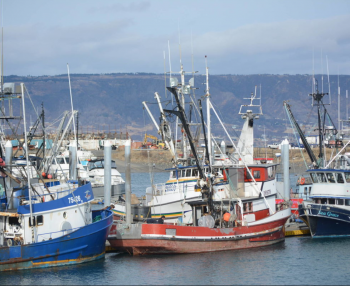
Congress considering safety, climate change for fisheries
Congress is getting involved in fisheries in a couple key areas: safety and climate change. The FISH SAFE Act, and, Climate Ready Fisheries Act of 2019. Republican Rep. Don Young is leading a bipartisan effort along with Rep. Jared Golden (D, Maine) to improve safety, introducing the Funding Instruction for Safety Health, and Security Avoids Fishing Emergencies Act.,,, The most recent climate change legislation, also bipartisan, was introduced by Rep. Joe Cunningham, (D- S.C), and is co-sponsored by Reps Brian Mast (R-Fla.), Francis Rooney (R-Fla.) and Jared Huffman (D-Calif.), and is meant to help “low country” fishermen, but the impact, should it pass, would presumably help fishermen nation-wide. >click to read< 21:51
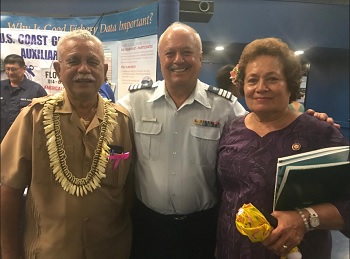
Lt. Governor, Congresswoman, Territory Commerce Department Stress Importance of Fisheries to the U.S. Territory of American Samoa
“Fisheries sustains our livelihoods in all aspects of our lives” was the core message that reverberated through the remarks of Lt. Gov. Lemanu Peleti Mauga, who opened the 180th meeting of the Western Pacific Regional Fishery Management Council yesterday in Pago Pago, American Samoa. Congresswoman Aumua Amata Radewagen’s opening remarks echoed those of the Lt. Governor. “Fishing has sustained us for our entire history,” she said. >click to read< 16:28
Congresswoman: US negotiators went backwards – Congresswoman Aumua Amata says US negotiators went backwards when they reduced 700 fishing days in the current South Pacific Tuna Treaty. Audio, >click to read< 16:30

Efforts underway to streamline fisheries disaster relief
With an increasing number of fisheries disaster requests coming from all over the United States, members of Congress and the federal government are looking for ways to improve the relief process.,, Summer 2018 brought disappointing results for many fishermen across Alaska,,, The slow process isn’t unique to Alaska. ways to improve the relief process, introduced Senate Bill 2346 by Sen. Roger Wicker, R-Miss., in July, seeks to speed up that process, in part by expediting relief funds being disbursed to fishermen. It also seeks to add avenues for relief for non-commercial fishermen, including charter operators. >click to read< 15:00
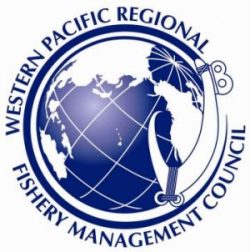
Western Pacific Fishery Management Council meeting October 21–24 in Pago Pago, American Samoa.
To read the meeting agenda, and all related meeting material of the 180th Council Meeting, >click here< 20:15

Huffman Gets Bleak Input on Fisheries
On Oct. 5, North Coast Congressman Jared Huffman held a public meeting in Arcata to discuss updating the Magnuson-Stevens Fishery Conservation and Management Act (MSA), the federal legislation that governs ocean fishing. Huffman brought together a roundtable of regional and local officials, a Humboldt State University professor and a few representatives of the local fishing industry to offer feedback on the failings — and successes — of the MSA. >click to read< 10:22
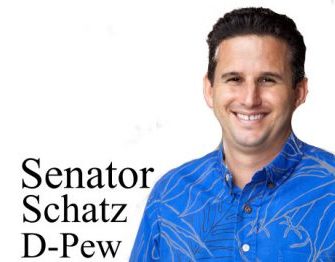
Panel Of Third Graders To Dictate Nation’s Climate Change Policy
At a panel on climate change held yesterday, the Senate brought in a group of excited third graders for ideas on fighting climate change. “These kids have ideas and they are passionate, so we must listen to them,” said Sen. Brian Schatz of Hawaii. “There are no possible downsides to taking kids who have been told the world is ending by the public school system and allowing them to dictate national policies on important issues.” The kids came up with the following list so far, though they say they’re “just spitballing” and the ideas need some fleshing out,, >click to read<
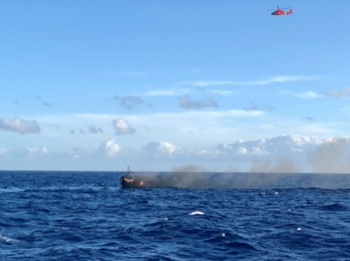
Coast Guard rescues 6 fishermen and an observer from a fishing vessel on fire off Oahu
Six crew and an NOAA observer are safe following a Coast Guard rescue eight miles off Ko’Olina, Tuesday. A Coast Guard Station Honolulu 45-foot Response-Boat Medium crew rescued the crew of the fishing vessel Miss Emma from a liferaft after the ship reportedly caught fire. Coast Guard Sector Honolulu Watchstanders received a mayday call on VHF-FM channel 16 at 4:29 p.m. reporting the crew was battling a vessel fire. Photo’s, >click to read< 06:56
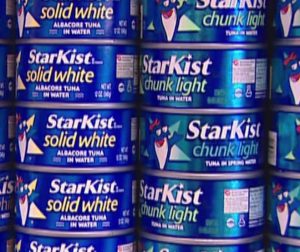
Starkist Hit With $100M Fine in Seafood Price-Fixing Scheme
Starkist must pay a $100 million criminal fine for conspiring to fix packaged seafood prices, a federal judge ruled Wednesday, despite arguments it could bankrupt the company or cause its employees to lose jobs. “I think it’s in the interest of the economy not to bankrupt Starkist, but the court has the leverage to extend the payments out,”,, Starkist general counsel and senior vice president Robert Scott Meece said the company has about 100 employees at its Pittsburgh headquarters and 2,100 working at a factory in American Samoa. “These employees have had this hanging over their heads for a long time,” >click to read< 12:00
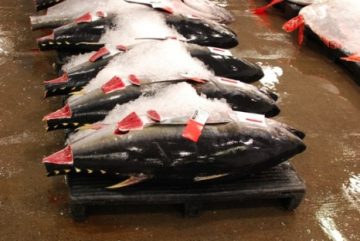
Congressmen Ask Feds To Investigate Hawaii Tuna Money
Four members of Congress are requesting a federal investigation into a murky fund that’s connected to commercial tuna fishermen in Hawaii and three U.S. Pacific island territories. In a letter last week to Inspector General Peggy Gustafson, U.S. Reps. Ed Case of Hawaii, Raul Grijalva of Arizona, Jared Huffman of California and Gregorio Sablan of the Northern Mariana Islands asked for a comprehensive audit of the millions of dollars that have flowed through the Western Pacific Sustainable Fisheries Fund, stretching back to at least 2012. They have concerns about the National Oceanic and Atmospheric Administration’s oversight and how the Western Pacific Regional Fishery Management Council has doled out the money. >click to read< 16:57
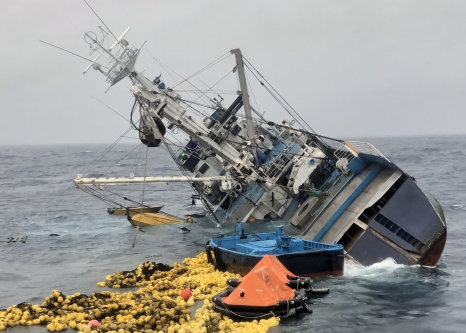
Coast Guard rescues 25 fishermen and 12 Coast Guardsmen as boarded vessel capsizes and sinks
The U.S. Coast Guard rescued 25 fishing boat crewmen and 12 Coast Guardsmen after the fishing boat they were aboard capsized and sank approximately 336 nautical miles southeast of Clipperton Island in the Eastern Pacific Ocean, Wednesday. Coast Guardsmen were conducting a routine boarding of the 160-foot Ecuadorian fishing vessel Marujita when it began listing and became unsafe to remain aboard. Photo’s, >click to read< 08:55
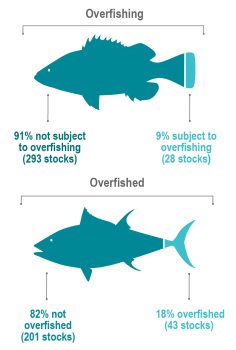
2018 Report to Congress on the Status of U.S. Fisheries
Number of US fish stocks at sustainable levels remains near record high – Today, the National Oceanic and Atmospheric Administration (NOAA) released the Status of U.S. Fisheries Annual Report to Congress, which details the status of 479 federally-managed stocks or stock complexes in the U.S. to identify which stocks are subject to overfishing, are overfished, or are rebuilt to sustainable levels. >click here to read a rundown of the report< To read the report, 2018 Report to Congress on the Status of U.S. Fisheries >click here< 15:26
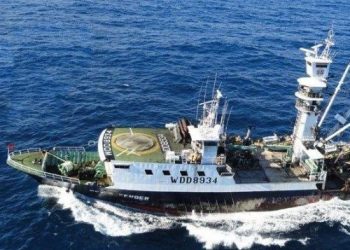
San Diego-based tuna company selling boats, blames U.S. regulations
A large San Diego-based tuna fishing operation, responsible for a sizable chunk of the tuna eaten by U.S. consumers, says it is slashing the size of its fleet by more than half. South Pacific Tuna Corp. says it is selling eight of its 14 boats to foreign companies, eliminating more than 200 jobs, because of stifling U.S. regulations that it says make it difficult to earn a profit..,, The sale of the boats would mean a reduction of 70,000 tons of tuna from a U.S. company, meaning more Americans would be eating tuna caught by foreign operators, who are often criticized for poor labor practices. >click to read< 10:31
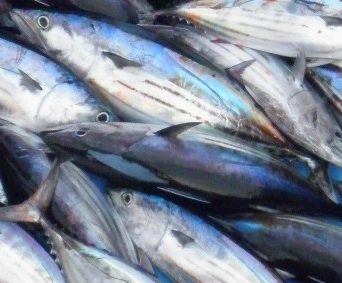
US tuna supplier Tri Marine sold to Bolton Group
Bolton Group, the Italy-based FMCG business, has reached an agreement with fellow tuna supplier Tri Marine of the US to acquire the remainder of the company. Milan-based Bolton has held a “significant” minority interest in the Tri Marine global business since 2013 and will now take 100% ownership, according to a statement, with both parties agreeing not to disclose the terms of a deal that was first mooted in April. Privately-held Tri Marine, which is engaged in the fishing, processing and distributing of tuna, will retain its name, while chief executive Renato Curto will continue to fulfil his role during a transition period. >click to read< 17:45
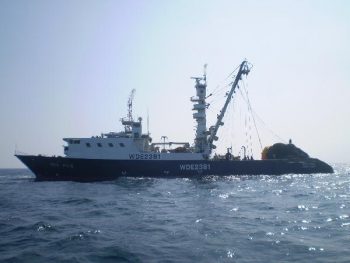
South Pacific Tuna Corporation cuts fleet by more than half
South Pacific Tuna Corporation announced yesterday that is selling more than half of its 14 U.S.-flagged purse seine fishing vessels to foreign operators, reducing its fleet to six by the end of the year. Approximately 12 U.S. captains and their crew will be relieved of duty. Additionally, the San Diego-based office and management team will be reduced to support the downsized fleet.,,, “Our fleet reduction is due in part to the U.S. government’s continued lack of support and the lack of interest in ratifying the 1988 South Pacific Tuna Treaty, renegotiated in 2016,” >click to read<
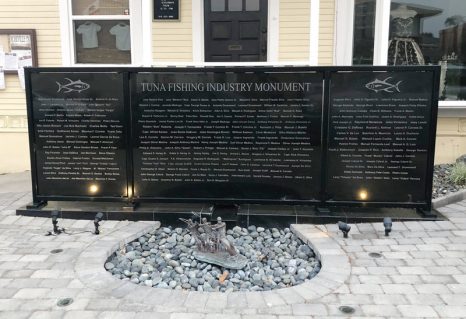
San Diego – Tuna fishing industry monument pays homage to those who served
Calling all past and present members of the tuna industry: It’s time to honor those who served in the industry with a plaque or paver at the Tuna Industry Monument in Point Loma. Located in the front of The Portuguese Historical Center since 2014, the large black monument made of granite pays homage to all those in the tuna industry. With about 85 names engraved on plaques, there is room for more to be added. >click to read<12:48
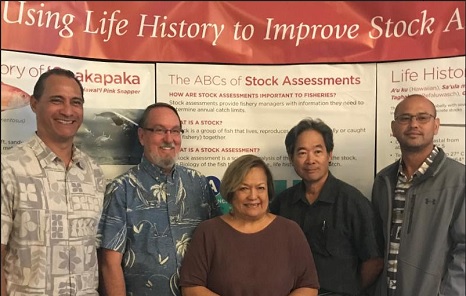
Council Responds to Honolulu Civil Beat Series, Acts on Hawai’i Fisheries and Protected Species
The Western Pacific Regional Fishery Management Council yesterday in Honolulu responded to the Honolulu Civil Beat’s three-part series suggesting members of the Council’s Executive Committee engaged in decision-making for self-profit. Vice Chair John Gourley (Commonwealth of the Northern Mariana Islands, or CNMI) said the Civil Beat articles implied that funding he received from the Sustainable Fisheries Fund for fish biosampling continued after he became a Council member. Honolulu Civil Beat statements about Gourley were included in a section titled “Conflicts of Interest.” >click to read<08:32






































